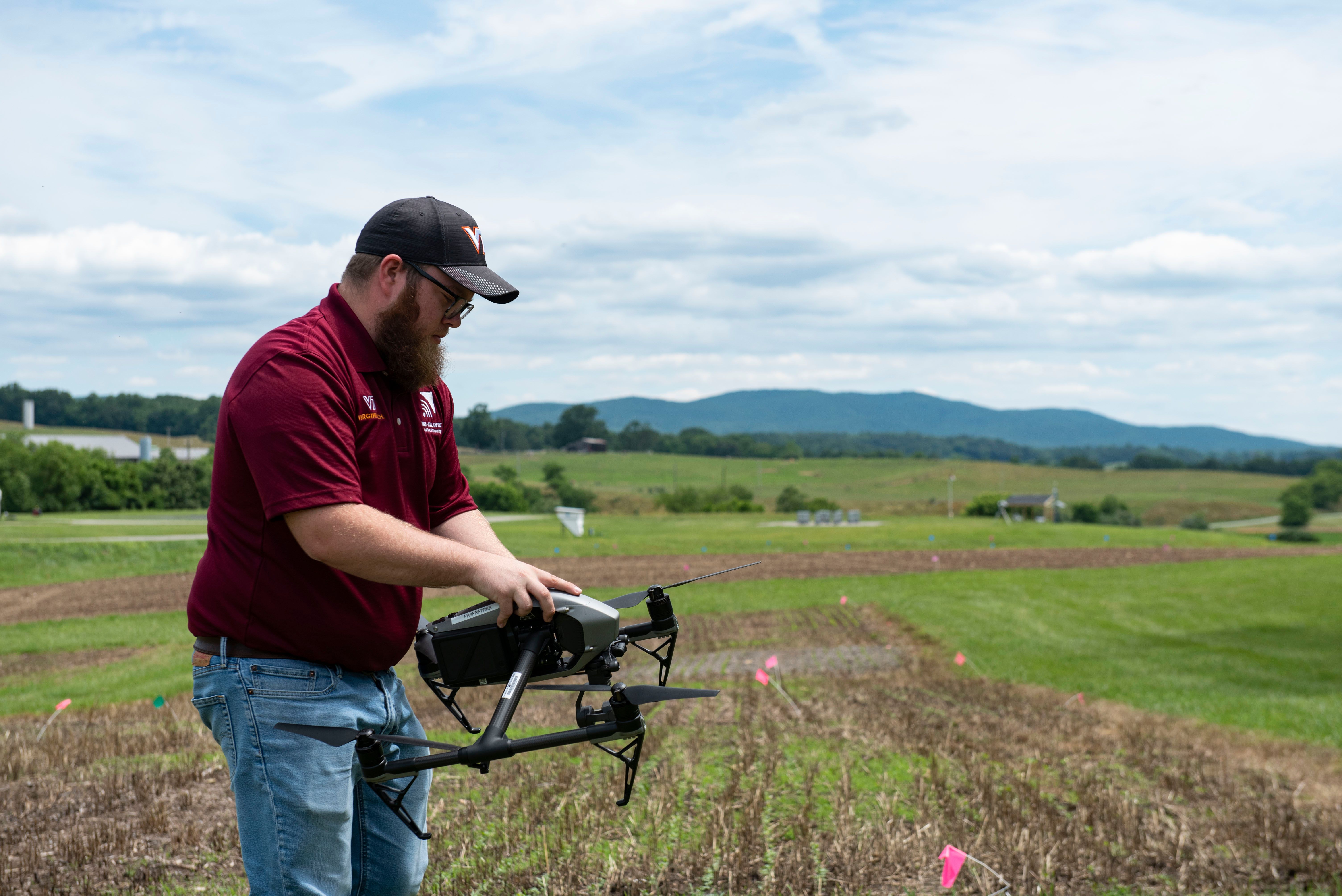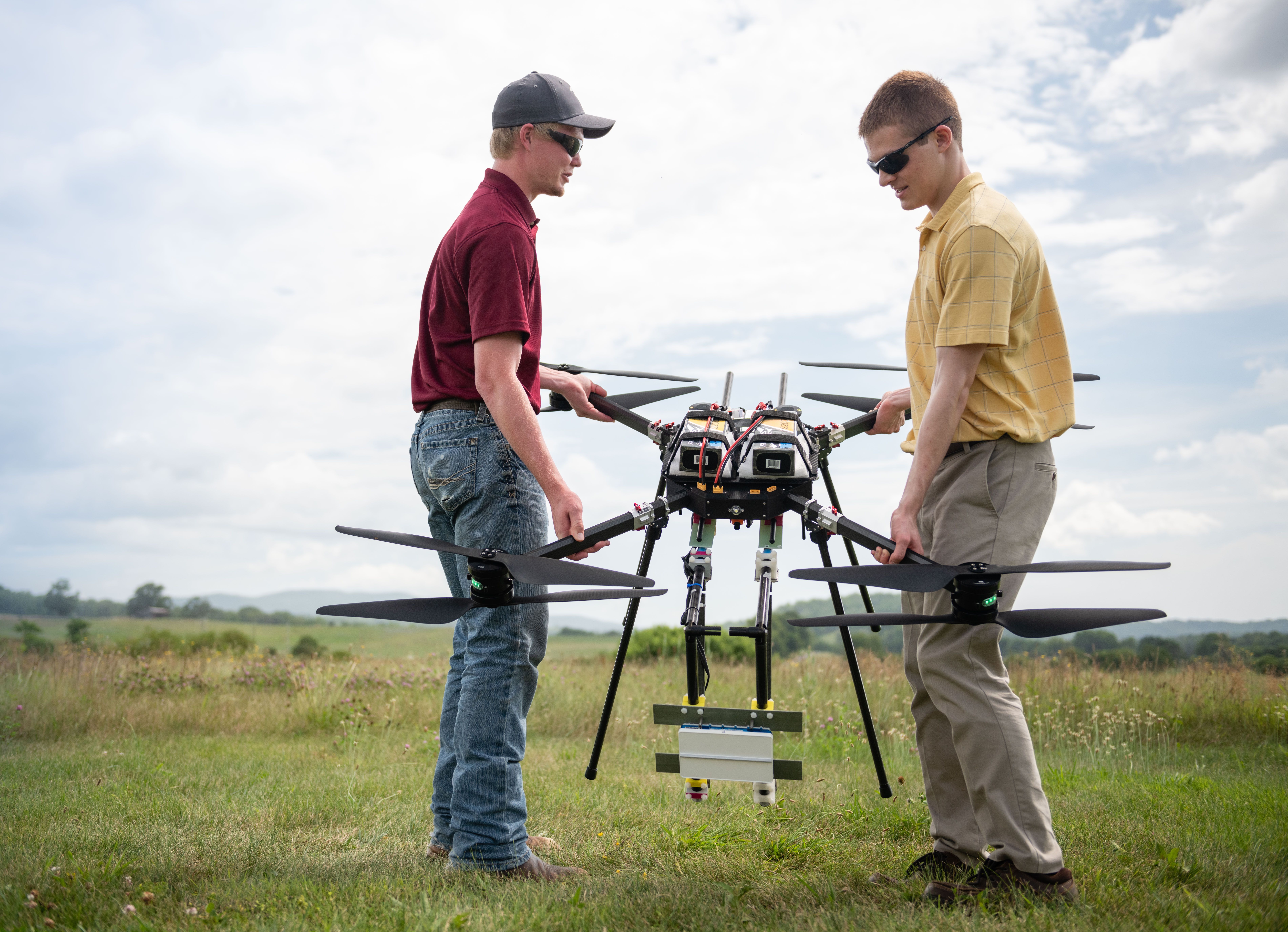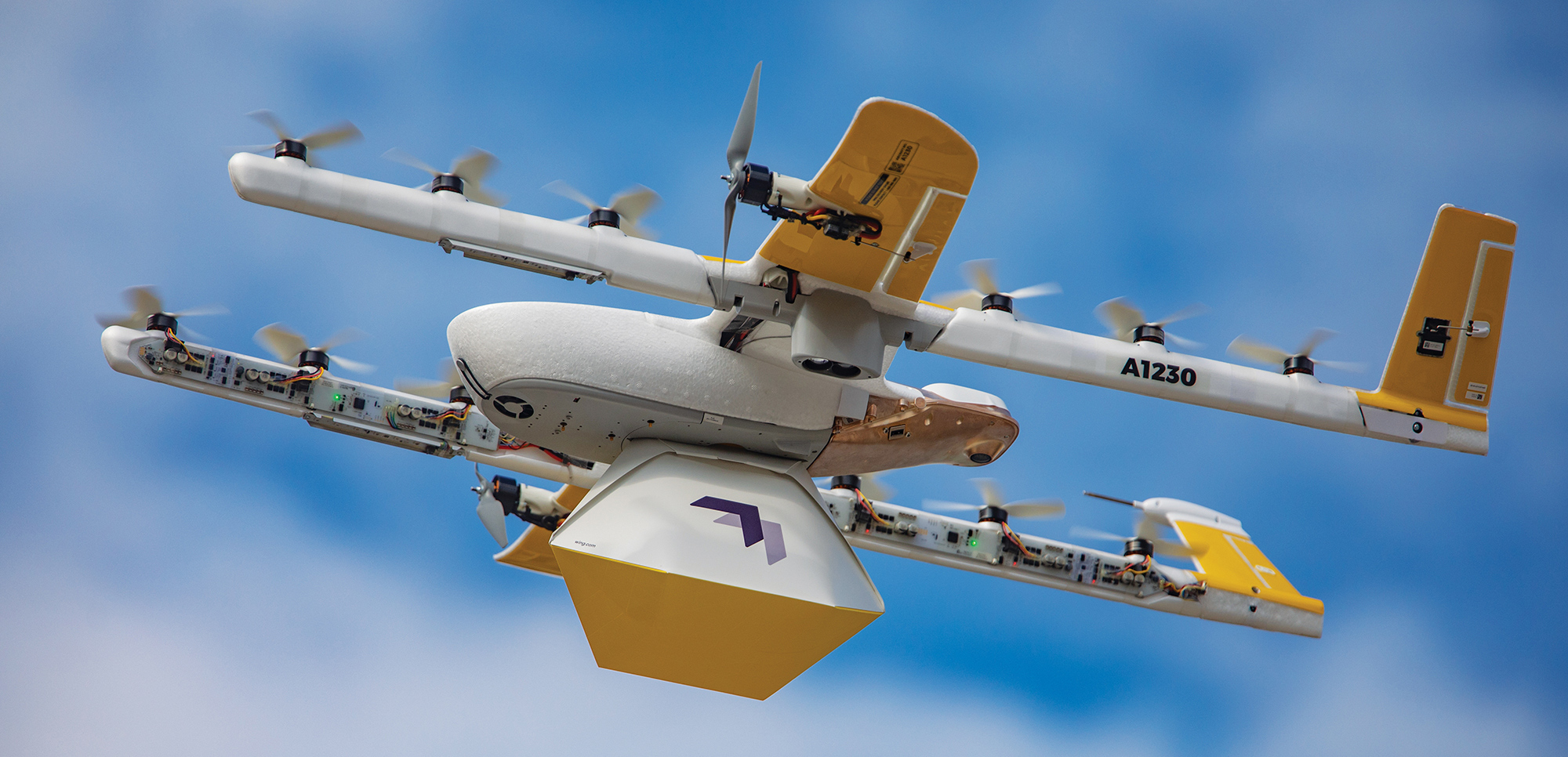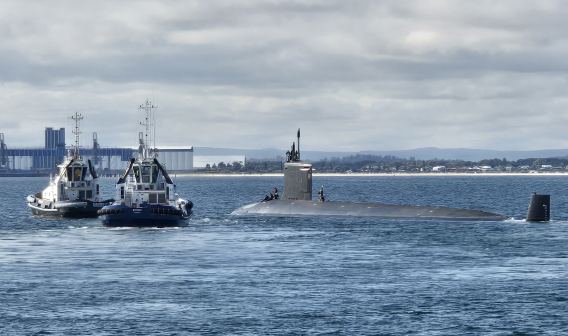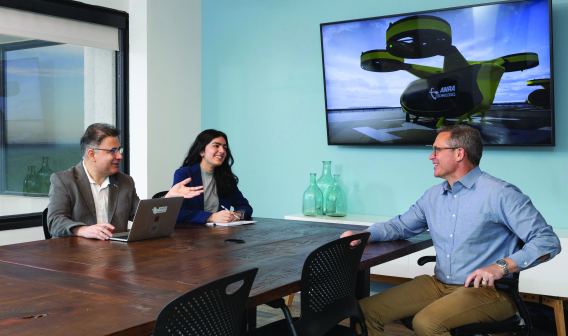A Welcoming Atmosphere
With Wing, Google Pioneers Drone Delivery in Virginia
On a gravel lot just off of Welcome Street in Christiansburg in Montgomery County, an array of unmanned aerial vehicle (UAV) recharging pads is flanked by office trailers and shipping containers. As unassuming as the place looks, it’s actually at the tip of unmanned technology development.
Home to Google-backed drone delivery company Wing, and only a few miles from a hub of UAV research at the campus of Virginia Tech — the “Nest,” as Wing calls the site — is dispatching small delivery drones with packages to residential customers within a six-mile radius.
Wing’s drones are the centerpiece of the first FAA-sanctioned drone-delivery trial in the United States. Starting in October 2019, the company began bringing goods from FedEx Express, Walgreens, and local gift shop Sugar Magnolia to Christiansburg consumers. The deliveries are a learning experience for everyone and require some advance work.
Before customers within the defined delivery area can order medications from Walgreens or gifts from Sugar Magnolia via the Wing delivery app, the company sends out a representative to confirm the GPS coordinates of the delivery address and to see if it has suitable, safe drone drop-off spots.
Once an order is placed, it shows up on Wing’s system at the Nest, where inventory from the trial merchants is stored. Wing’s software determines which drone to use, and a Wing employee prepares the roughly three-pound order package. One of Wing’s 10.6-pound battery-powered drones then fires up, climbs 23 feet above its charge pad, and lowers a tethered hook to which a team member affixes the specially shaped package.
The drone then proceeds at about 65 mph, 120 feet above the ground, to the address coordinates. There, it descends to 23 feet and lowers the tethered package to the ground, where the customer (who receives real-time progress notifications from the app) simply unhooks the package. Up the tether goes again, and the Wing drone returns to its Nest.
“That entire process typically takes less than 10 minutes,” says Nicholas Devereux, Wing’s policy and government affairs representative.
The quick response time belies years of work that Wing and the Mid-Atlantic Aviation Partnership (MAAP) at Virginia Tech have put into making drone delivery trials possible.
An Innovation and Evaluation Partnership
Mark Blanks became acquainted with Wing in early 2016. Blanks is the director of MAAP, part of the Institute for Critical Technology and Applied Science at Virginia Tech.
“We were at a conference and began talking with people from Wing, chatting about the testing, evaluation, research, and development that [Virginia Tech] does,” he said. “That conversation turned into a long-term relationship.”
Founded in 2013, MAAP is one of seven FAA-designated unmanned air system (UAS) test centers in the United States — a distinction it owes to Virginia Tech’s 15 years of experience as a UAS systems evaluator. Virginia Tech’s relationships with federal UAS research and development centers — notably NASA facilities at Langley and Wallops Island and the Naval Surface Warfare Center Dahlgren Division in King George County — helped secure the designation.
MAAP also handles day-to-day operations of Virginia’s work as one of 10 UAS Integration Pilot Program (IPP) sites and works extensively on research to help unmanned companies solve technological issues and work with regulators to draft policies and standards.
“We spend most of our time helping companies build safety cases to obtain FAA waivers, certifications, or approvals for operations,” Blanks explains.
One of MAAP’s IPP projects is a partnership with State Farm, which has used drones as a safer, more efficient way to complete roof inspections. The insurance company has worked with MAAP to conduct research on flights beyond line of sight and over people in order to obtain waivers for expanded flights. Dominion Energy has done similar work with IPP, working to obtain waivers to conduct flights beyond line of sight to inspect transmission lines and other infrastructure.
Virginia Tech’s reputation was well known by Wing, which began in 2012 as an effort within Google X, the search engine company’s experimental division (now part of parent company Alphabet), which spawned the Waymo self-driving car, among other spinoffs. Wing became an Alphabet subsidiary in 2018.
The meeting Blanks described led to a drone delivery trial in September 2016, wherein the company partnered with Chipotle to deliver orders on Virginia Tech’s campus for three weeks.
Wing had actually been in discussions to partner with other UAS test sites in the United States, but Devereux credits Virginia’s leadership with inspiring the company’s partnership with MAAP and Virginia Tech.
“The atmosphere that has been put in place in Virginia is very welcoming to emerging technologies such as ours,” he said.
Christiansburg proved to be a good environment for drone tests because of both its proximity to MAAP and Virginia Tech and its “urban light” environment. The town offers some of the characteristics of urban areas without the challenges that more crowded cities present.
MAAP and Wing have worked hand in hand to bring the current delivery trials to fruition, with their mutual personnel frequently in consultation between the Virginia Tech campus and Wing’s nearby Nest.
Wing’s drone, its flight control/safety systems, and delivery logistics were all developed by the company itself. The first Wing delivery trials took place in Australia in 2018 and continue there, along with another site in Helsinki, Finland.
Experience from these has been applied to the Christiansburg trials while Wing has worked through MAAP for access to Virginia Tech facilities like its Kentland Farm dairy science complex for flight testing. The company has also partnered with other Virginia Tech departments for projects like drone impact testing and a frangible design (designed to break into fragments) for its UAV.
Taking Wing
The delivery trials that began last year continue and, according to MAAP and Wing, have been well received.
“There’s been an extremely positive public reception,” Blanks said. Devereux attributes that positive response in part to Wing’s partnership with trusted local operations in Virginia Tech and MAAP.
He also credits the community outreach Wing did in the months leading up to the trials. Meeting with local officials and first responders was part of a broader effort to educate the community about the realities of drone delivery. Among the lessons the company learned from trials in Australia was the need to respond to public questions about safety, privacy, and noise.
“We set up a booth at every single community festival that we could find,” says Devereux.
Wing highlighted the 80,000 successful flights it says its drones have made. The company addressed privacy concerns by explaining that its drones only use low resolution, grayscale cameras for navigation backup, and that it is working to reduce the volume and lower the pitch of noise that drones make.
Wing won’t say how many delivery flights it has made in Christiansburg. The company claims it has never lost a drone and made thousands of deliveries globally. That’s partially because it only flies in fair weather during daylight hours. Blanks acknowledges that weather has curtailed Christiansburg deliveries during the winter, but says there’s long-term value in drone delivery.
“We started this at a crawl with a limited number of vendors, products, and coverage areas,” he said, “but as that grows, I expect the value of the service will grow.”
